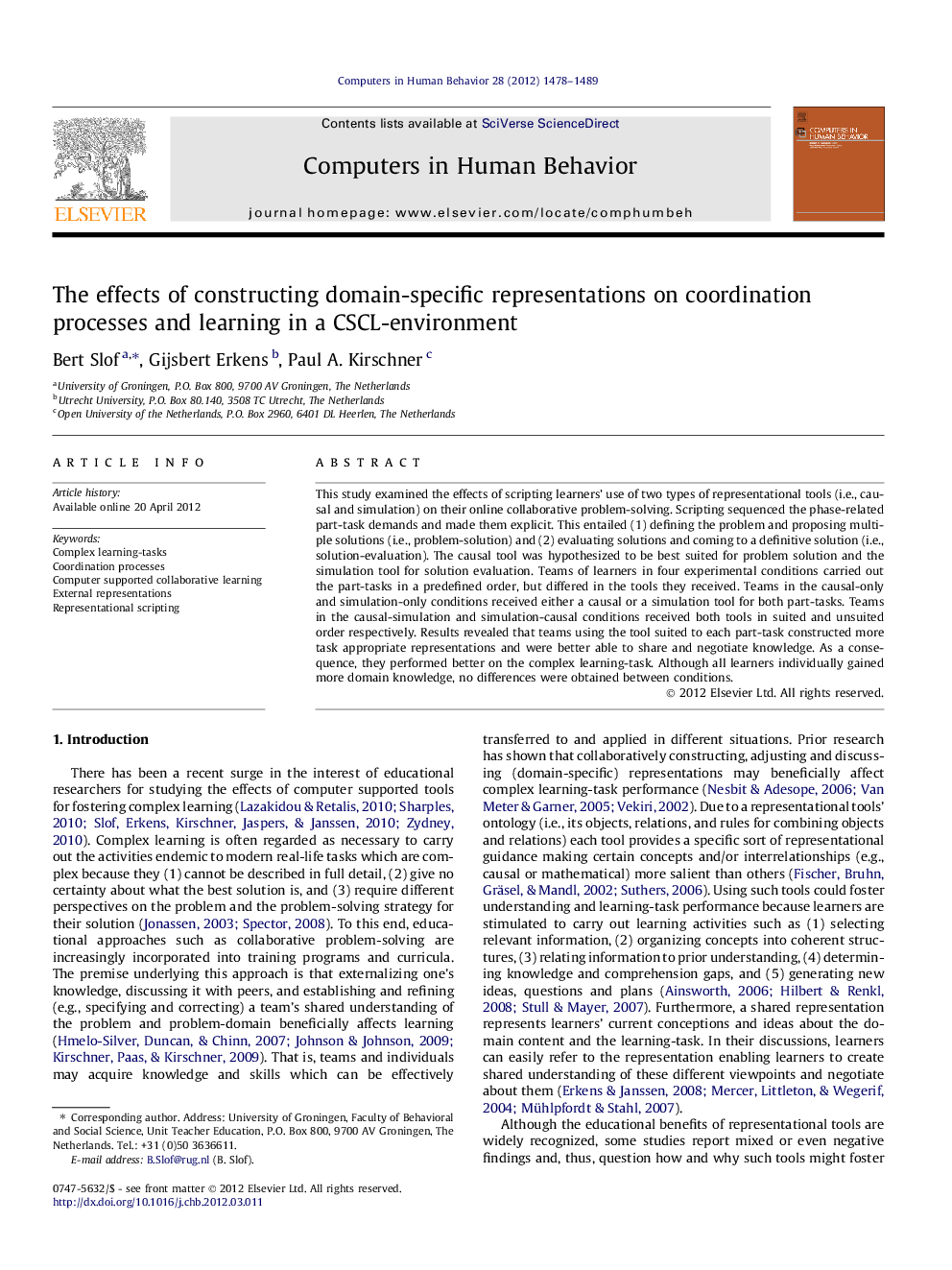| Article ID | Journal | Published Year | Pages | File Type |
|---|---|---|---|---|
| 351410 | Computers in Human Behavior | 2012 | 12 Pages |
This study examined the effects of scripting learners’ use of two types of representational tools (i.e., causal and simulation) on their online collaborative problem-solving. Scripting sequenced the phase-related part-task demands and made them explicit. This entailed (1) defining the problem and proposing multiple solutions (i.e., problem-solution) and (2) evaluating solutions and coming to a definitive solution (i.e., solution-evaluation). The causal tool was hypothesized to be best suited for problem solution and the simulation tool for solution evaluation. Teams of learners in four experimental conditions carried out the part-tasks in a predefined order, but differed in the tools they received. Teams in the causal-only and simulation-only conditions received either a causal or a simulation tool for both part-tasks. Teams in the causal-simulation and simulation-causal conditions received both tools in suited and unsuited order respectively. Results revealed that teams using the tool suited to each part-task constructed more task appropriate representations and were better able to share and negotiate knowledge. As a consequence, they performed better on the complex learning-task. Although all learners individually gained more domain knowledge, no differences were obtained between conditions.
► Qualitative representations should be introduced before quantitative ones. ► Constructing part-task specific representations evokes communicative activities. ► Constructing part-task specific representations fosters individual and team learning. ► Future research should examine the applicability in other domains and learning-tasks.
